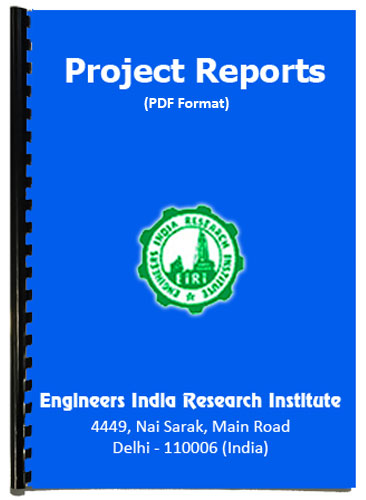ALLOY WHEEL RIM (12”)
The project report includes Present Market Position and Expected Future Demand, Market Size, Statistics, Trends, SWOT Analysis and Forecasts. Report provides a comprehensive analysis from industry covering detailed reporting and evaluates the position of the industry by providing insights to the SWOT analysis of the industry.
We can prepare PROJECT REPORT as per your INVESTMENT PLAN for BANK LOAN REQUIREMENT and INDUSTRY ANALYSIS. All reports are prepared by highly qualified consultants and verified by a panel of experts.
Have Query? Click Here to Chat
Industry Expert is Online, Chat with him for more detail.

In the automotive industry, alloy wheels are wheels that are made from an alloy of aluminium or magnesium. Alloys are mixtures of metal and other elements. They generally provide greater strength over pure metals, which are usually much softer and more ductile. Alloys of aluminium or magnesium are typically lighter for the same strength, provide better heat conduction, and often produce improved cosmetic appearance over steel wheels.
Lighter wheels can improve handling by reducing unsprung mass, allowing suspension to follow the terrain more closely and thus improve grip, however not all alloy wheels are lighter than their steel equivalents. Reduction in overall vehicle mass can also help to reduce fuel consumption. Better heat conduction and a more open wheel design can help dissipate heat from the brakes, which improves braking performance in more demanding driving conditions and reduces the chance of diminished brake performance or even failure due to overheating. The alloy wheel rim weight varies based rim sizes. The weight of 12” Alloy rim is 5.5 Kg.
Unlike steel wheels which are made simply from steel, alloy wheels are made out of a mixture of metals such as aluminium or magnesium. Alloy wheels are cast, and it is this process that allows designers to create a variety of complex designs which offer more appeal than plain steel wheels.
At one time, only premium cars or sporty models came fitted as standard with alloy wheels and alloy wheels have long been considered a desirable feature. However, there are now more car manufacturers fitting alloy wheels as standard on the majority of their vehicles due to the vast benefits of alloy wheels.
Alloy wheels can also be fitted retrospectively to your car and offer a great way to update the look of your vehicle, regardless of whether it came with alloys, to begin with, or not.
Fitting alloy wheels is also a fantastic way to make sure your car stands out, as they are available in a wide range of different sizes, designs and finishes. This allows you to adapt the car to your tastes, for example, you could opt for sporty alloys for a more dynamic look or brash colourful alloys to liven your car up.
Alloy wheels are lighter than steel wheels, and this has a number of benefits. Firstly, as they reduce the overall weight of the car, they can help improve fuel economy. The lighter weight also reduces brake pressure, which can result in slightly better braking abilities and marginally improved brake wear
It is intended to prepare a Feasibility Report to install 1000 Nos /Day production facility of Alloy Wheel Rim (12”) as a Green Filed Project.



